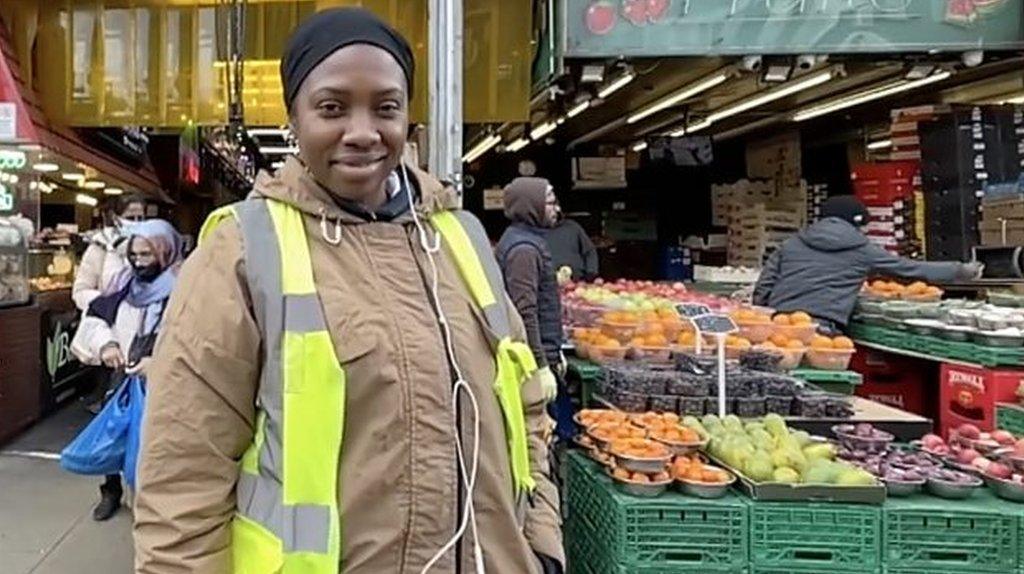London rents: Competition for homes pushes up prices
- Published
‘It wasn’t OK to go through all of this just to find an apartment’
Renters in London are facing higher costs as competition for properties drives up prices, data has shown.
Rising demand for homes combined with a falling supply has caused prices to increase to levels higher than before the pandemic, when average rent fell.
Areas of outer London have seen the largest rises in demand from renters as people search for cheaper costs, according to research by Rightmove.
One estate agent described the current state of the rental market as "crazy".
Demand for city-centre properties dropped dramatically during the pandemic lockdowns with London seeing the biggest fall in the UK, corresponding with a slight drop in the average amount renters paid for properties per month.
However, the most recent index of private housing rental prices, created by the Office of National Statistics (ONS), showed rents in the capital have risen steeply, up 2.5% this August from one year earlier, external.

While the rises were less extreme than the UK as a whole, the cost of renting in London was still higher than anywhere else in the country.
Charitable foundation Trust for London found that for between April 2021 and March 2022 the average rent for a one-bedroom dwelling cost the equivalent of 46.3% the gross-median pay in London, external, compared to 26.4% for the rest of England.

'It's becoming harder to stay here'
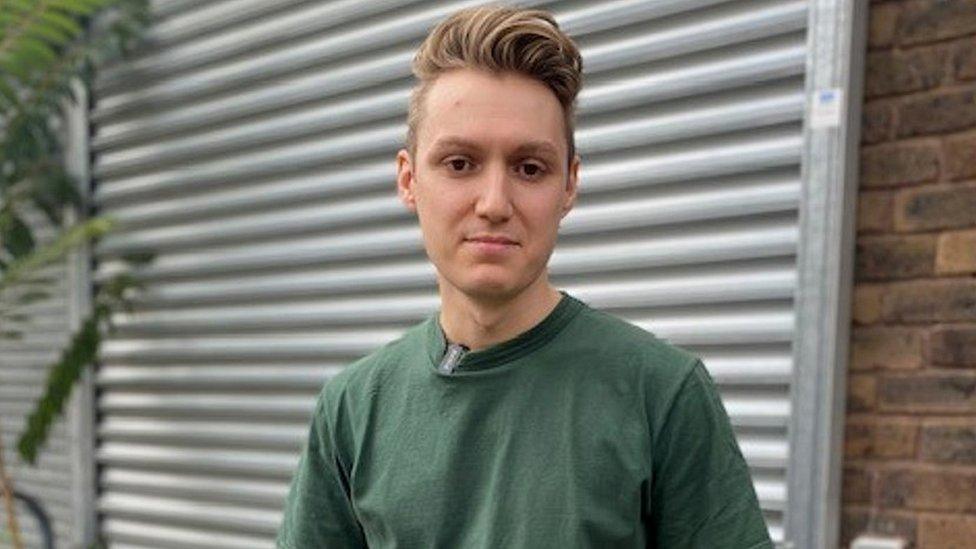
Charley Hullah acts as a property guardian to try to reduce his living costs
Charley Hullah, who works as a freelance creative, has spent the last nine years acting as a property guardian, where he lives in vacant spaces like abandoned offices and schools rather than normal rental properties.
The scheme, which means buildings are protected from issues like squatters and break-ins, provides fewer rights to renters than normal residential tenants but can prove less costly when living in the capital.
"It's usually much cheaper. It might be precarious... but it can actually give you an alternative and for what has been the most part my experience, an affordable way to live in London," he said.
Nevertheless, the 29-year-old has found even the cost of living as a guardian has dramatically increased recently.
"You may have been paying a very low fee, maybe £200, £300, £400 for a space, but now I'm seeing £600 to £1,200 for a room studio space," he said.
"I've been to viewings where it's almost like an estate agent viewing where you've got people on big incomes and well-paid professionals becoming guardians because they can't afford other private rental options."
He believes such rising costs may mean people begin turning away from the capital as a place to live.
"It's becoming harder to stay here if you're not earning a large income simply because you have to pay over half your income or monthly wage on your rent and I think people are questioning whether that's worth it anymore," he said.

Such rises in rent are being partly caused through a combination of increasing demand for properties and fewer homes being available on the market, according to property website Rightmove.
The firm found that, over the past 12 months to this September, the average amount landlords asked for rent on its site had risen by 17% to £2,361 per calendar month, whatever the size of property.

During the same period, the number of rental properties available fell by 35% while the demand for homes, based on the number of unique people inquiring to go and view a property with an estate agent through Rightmove, rose by 14%.
The situation may have slightly improved from the year before when demand and supply were even more extreme but Jeremy Leaf, an estate agent with more than 25 years' experience, still considers the current state of London's rental market to be "crazy".
"You have multiple calls for the same property. You might have 25 to 30 viewings for one property with some people even bidding blind on it saying 'I'm having that' even though they haven't seen it," he said.

With the centre of the city continuing to have the most expensive rents, external, Rightmove also found the greatest rise in demand for properties had been predominately in the outskirts of the capital as people searched for more affordable places to live.
Coulsdon saw a 228% increase in demand for rental properties compared to a year ago, while Purley had a 115% rise and Romford saw a 102% increase.
Indeed, the top 10 places in the capital for rising demand were all outside zones one and two.
Mr Leaf said estate agents were finding that there were "too few properties, too many people choosing them, rents going up, quality going down," and considers the situation to be "no good for anyone".
He added that supply of homes was partly falling because landlords were leaving the sector for various reasons including trouble with tenants and increasing costs and regulations.
"Sometimes they've just had enough because a lot are retired or semi-retired, and they've got a lot of expenses themselves," he explained.
"Everybody has a line they don't want to cross."
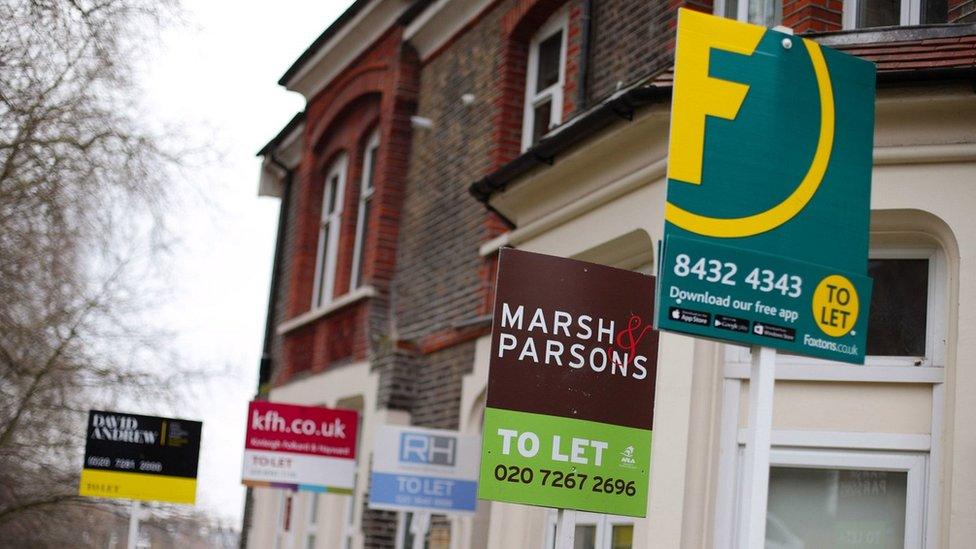
Demand for rental properties has surged particularly in outer London, according to Rightmove
For Paul Cheshire, professor of economic geography at the London School of Economics and Political Science (LSE), the issues with the capital's rental market are all because "we've consistently not built enough houses for 30 to 40 years now".
"Before the Second World War, in that decade we built over 60,000 houses a year on what is now the GLA (Greater London Authority) area. The most recent decade we built about 24,000 houses a year," he said.
"The rental market in London essentially is the problem of London housing - we just don't have enough of it."

Places for renters to find help and advice
Source: Mayor of London

Follow BBC London on Facebook, external, Twitter , externaland Instagram, external. Send your story ideas to hellobbclondon@bbc.co.uk, external
Related topics
- Published10 November 2022
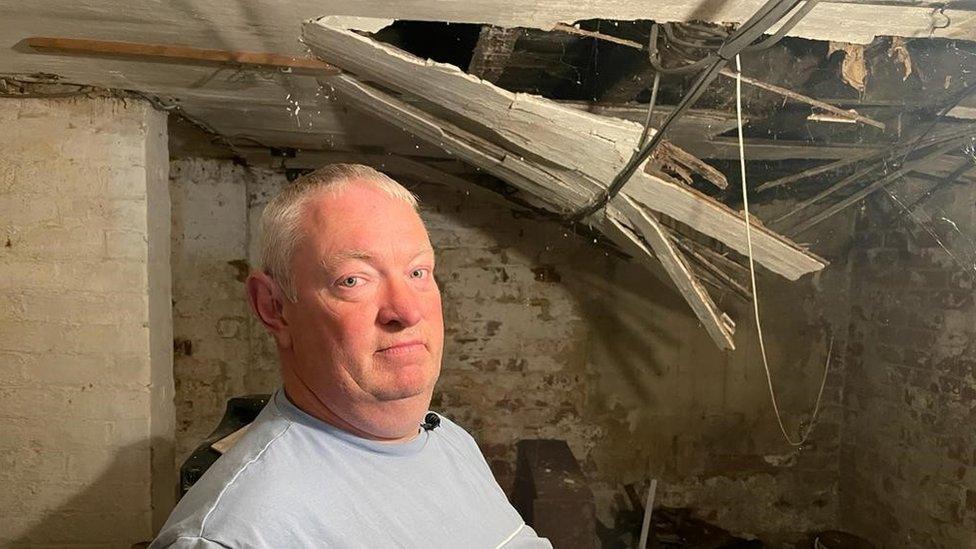
- Published2 September 2022
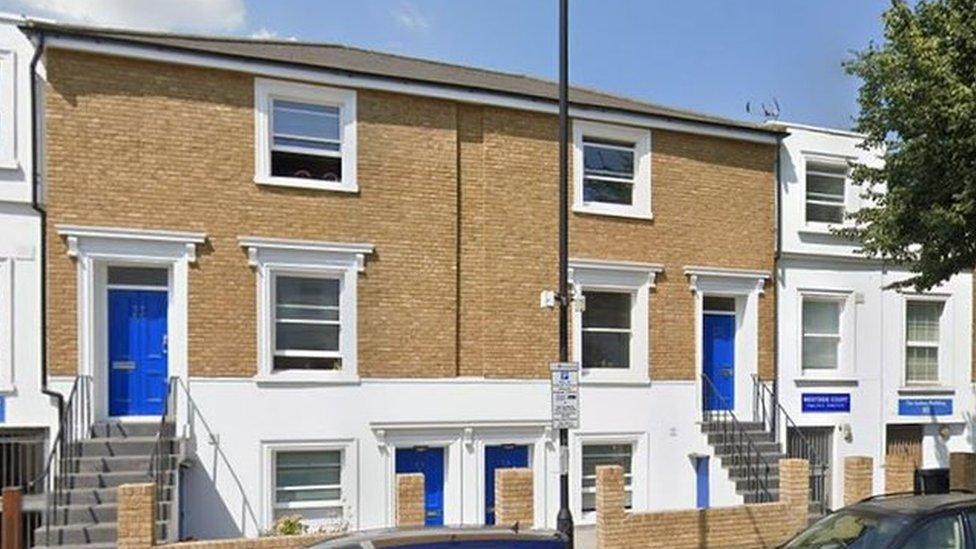
- Published20 August 2022
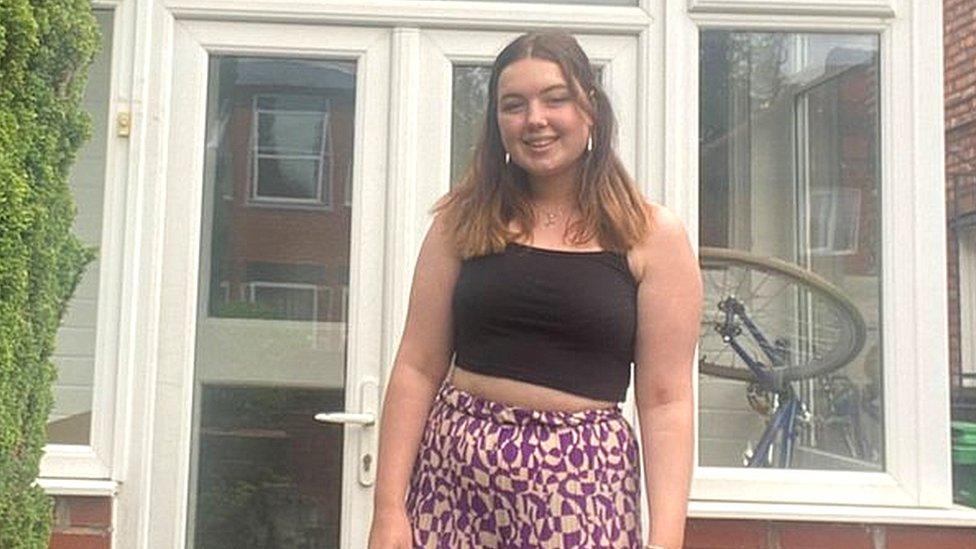
- Published19 August 2022

- Published13 May 2022

- Published9 February 2022
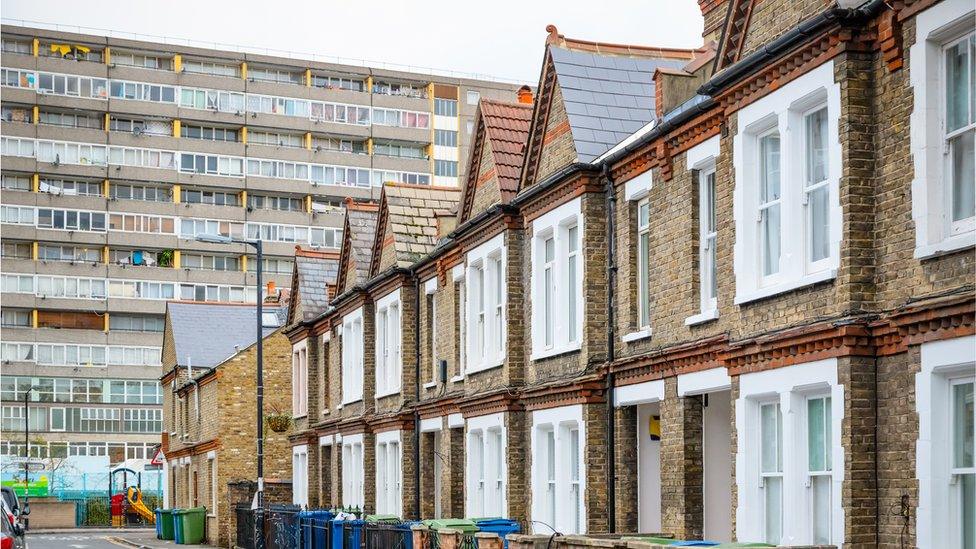
- Published8 April 2022
